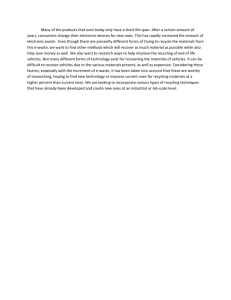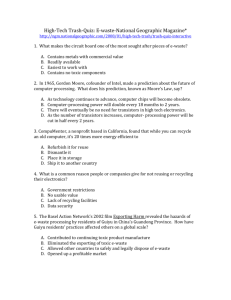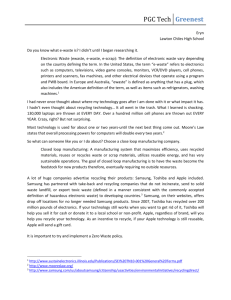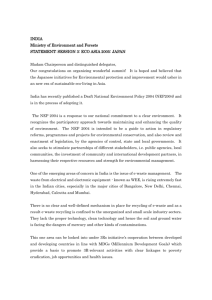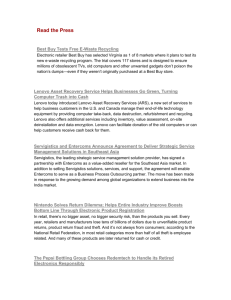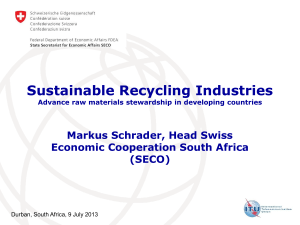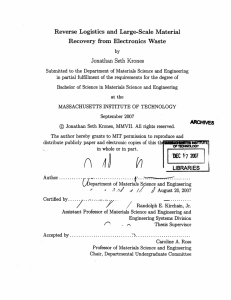Greenest Region Compact
advertisement
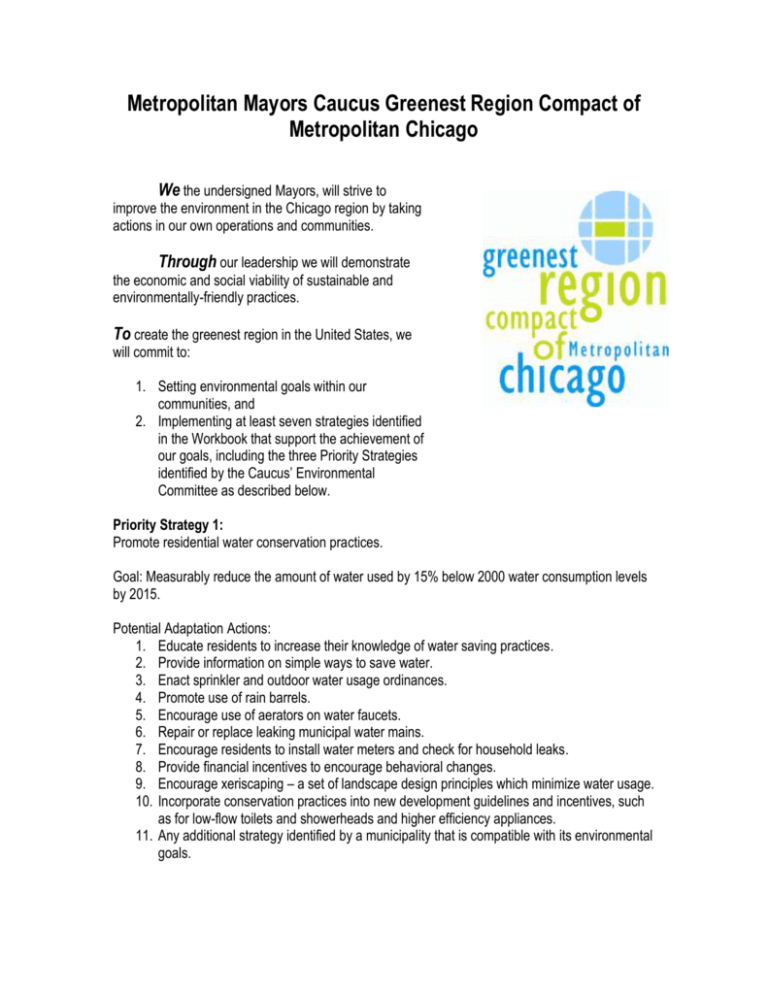
Metropolitan Mayors Caucus Greenest Region Compact of Metropolitan Chicago We the undersigned Mayors, will strive to improve the environment in the Chicago region by taking actions in our own operations and communities. Through our leadership we will demonstrate the economic and social viability of sustainable and environmentally-friendly practices. To create the greenest region in the United States, we will commit to: 1. Setting environmental goals within our communities, and 2. Implementing at least seven strategies identified in the Workbook that support the achievement of our goals, including the three Priority Strategies identified by the Caucus’ Environmental Committee as described below. Priority Strategy 1: Promote residential water conservation practices. Goal: Measurably reduce the amount of water used by 15% below 2000 water consumption levels by 2015. Potential Adaptation Actions: 1. Educate residents to increase their knowledge of water saving practices. 2. Provide information on simple ways to save water. 3. Enact sprinkler and outdoor water usage ordinances. 4. Promote use of rain barrels. 5. Encourage use of aerators on water faucets. 6. Repair or replace leaking municipal water mains. 7. Encourage residents to install water meters and check for household leaks. 8. Provide financial incentives to encourage behavioral changes. 9. Encourage xeriscaping – a set of landscape design principles which minimize water usage. 10. Incorporate conservation practices into new development guidelines and incentives, such as for low-flow toilets and showerheads and higher efficiency appliances. 11. Any additional strategy identified by a municipality that is compatible with its environmental goals. Priority Strategy 2: Enact E-Waste Recycling Programs. Goal: Measurably decrease the amount of electronic waste collected by curbside waste haulers. Potential Adaptation Actions: 1. Develop an e-waste recycling program. 2. Provide information to residents on the hazards of improper disposal of e-waste and the environmental benefits of recycling e-waste; 3. Host, sponsor or advertise at least one e-waste recycling event annually. 4. Donate used equipment to schools, libraries, non-profits, etc. 5. Any additional strategy identified by a municipality that is compatible with its environmental goals. Priority Strategy 3: Participate in the Northern Illinois Energy Project’s Residential Lighting Program. Goal: Reduce residential energy consumption by encouraging the use of Compact Fluorescent Light Bulbs. Potential Adaptation Actions: 1. Partner with the Northern Illinois Energy Project to offer free, or discounted, CFL light bulbs to residents. 2. Any additional strategy identified by a municipality that is compatible with its environmental goals. Additional Environmental Strategies: Air Strategies: 1. Retrofit municipal diesel engines by installing pollution control devices. 2. Raise awareness of public transit options by displaying information about options and promoting these choices to citizens, employees, and visitors. 3. Build bus shelters and install bike racks to encourage non-automotive travel. Energy Strategies: 4. Reduce energy consumption by changing out incandescent traffic signal bulbs to light emitting diodes (LEDs). 5. Commit to annually purchasing renewable energy or renewable energy certificates. Land Strategies: 6. Implement a municipal tree planting ordinance to establish, and maintain maximum tree cover. Waste Strategies: 7. Adopt a local ordinance or policy which requires the recycling of construction and demolition debris. 8. Offer a residential paint recycling program. 9. Implement a curbside recycling program. Water Strategies: 10. Review local stormwater ordinances, identify barriers to implementation, and encourage the implementation of Stormwater Best Management Practices though local planned developments and redevelopments. By signing the Greenest Region Compact of Metropolitan Chicago, we pledge to make environmental considerations a priority. We will demonstrate that environmental practices are fiscally responsible. We call on our residents and businesses to join us as environmental stewards to preserve our resources, climate, and economic viability of our region for future generations.
